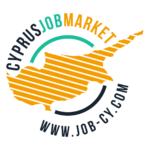Nicosia is currently the only divided capital city in the world. The green line divides it into 2 parts and makes it the center of two states – the Republic of Cyprus, where mostly Greek Cypriots live, and Northern Cyprus, where mostly Turkish Cypriots live. It is a place where cultures mix, where you can plunge into the active city life with its entertainment and culture, and at the same time get acquainted with the artifacts of antiquity.
The largest city in Cyprus, which is home to almost a third of the population of the entire island, is convenient for living and moving. Here you will find powerful bastions, cobbled streets, temples and monuments of the Middle Ages, oriental bazaars and fashionable boutiques.
Let’s discuss the prices of housing, food, education, transport and entertainment.

Housing
Nicosia is landlocked. The rental price here depends less on the season than in cities near the sea – Limassol, Larnaca or Paphos. Obviously, the price will differ from area to area and housing equipment.
Typically, when signing a lease, you will need to pay the first month’s fee and a deposit equal to the monthly lease. Long term leases are valid for one to two years renewable and do not include utilities. On average, the bill for a family of 2-3 people will be 150-200 euros per month: 60-70 euros for water and 80-100 euros for electricity. In the winter months, the bill will be 50-100 euros more, because you will be using electricity to heat your home (there is almost no central heating on the island). The internet will cost 25 euros on average.
Economy class one-room apartments in the city center cost from 500 euros per month, and a little further you can find a rent from 400 euros.
If you are looking for options with expensive repairs, appliances and furniture, then such an apartment or even a townhouse starts from 700-800 euros per month.
A large family home will cost between 1100-1400 euros per month.
Some areas of Nicosia where you can rent a house:
- Laiki Geitonia is an old town in the walled center, a tourist area and home of many migrants
- City Center – a modern city center with a vibrant business and shopping center
- Engomi is a popular student district and is home to the University of Cyprus
- Agioi Omologites – quiet residential area close to the center
- Arasta – northern part of the city, pedestrianized historical part of Nicosia
Food
Prices in Nicosia are slightly lower than in coastal cities. It is cheaper to buy in large supermarkets rather than in small shops. Prices are always lower there, in addition, there are often discounts. Or go to the local markets – there are more favorable prices for seafood, fish, meat, dairy products and fruits / vegetables.
Prices for some products:
Milk – 1.35 euros / liter
White bread – 1.4 euros / roll
Local cheese – 7 euros / kg
Eggs – 2.5 euros / 12 pcs
Chicken fillet – 6.5 EUR / kg
Beef fillet – 8 EUR / kg
Potatoes, onions – 0.7 euro / kg
Bananas, oranges – 1.3 euros / kg
Apples – 1.8 EUR / kg
As for dining outside, it will be 10-15% cheaper than in coastal places, but in tourist places the pricing will also be quite high.
A set lunch at McDonald’s will cost 6 euros.
Lunch at a cafe – 10 euros.
Dinner in a restaurant for two with alcohol will be around 40 euros.
A cup of coffee costs about 3 euros.
For 10 euros, you will have a delicious dinner with local street food and beer.

Transport
The center of Nicosia is inconvenient for cars and transport, it is easier to get around on foot. Nevertheless, the car is very convenient for moving around the island.
You can rent a car for a long term from 300-350 euros, and buy from 2000 euros.
A new European economy class car will cost from 17,000 euros.
A liter of gasoline costs 1.3 euros.
There are no railways on the island, but there are many buses and minibuses inside Nicosia and between cities. In addition, relatively inexpensive taxis are here. You can use a local analogue of Uber, which is called Bolt. The average taxi ride will cost 8-15 euros.
One-time trip by public transport – 1.5 euros.
The monthly pass will cost 40 euros.
Education
Cyprus holds the leading position among the countries of the European Union in terms of the number of people who have received higher education. There are private and public universities. Teaching is conducted in Greek, Turkish or English.
Kindergartens offer a wide range of languages to choose from: Russian, Greek or English. All are private and cost from 150 euros per month. There are also many development centers with a variety of activities: from dancing to robotics.
There are also Russian-speaking, Greek and English-speaking schools. Greek ones are free, the other two types cost between 3500-4000 euros per year.
Entertainment
Cyprus invites for the holidays! In small coastal villages and towns life freezes in winter, in Nicosia you can attend concerts, exhibitions, cinemas all year round (there are shows in different languagges), in addition, all kinds of festivals are held in Cyprus all year round – wine, roses, tulips, honey etc.
To keep fit, you can rent a tennis court, an hour will cost from 13 euros, and a month of training in the gym – from 48 euros.
A cinema ticket costs about 8 euros.
Melios Zoo – 3 euros per adult, 2 euros per child.
A ticket to the museum is 2-4 euros, there are free ones.
Children’s amusement parks – from 2.5 euros per ticket




